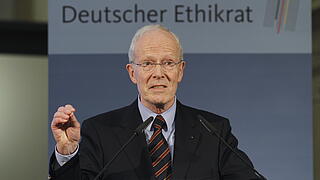The possibility of saving lives with the help of transplantation medicine raises medical as well as legal and ethical questions. A distinction must be made between living donation and post-mortem organ donation. The shortage of organs and the various approaches to addressing this (including politically) are repeatedly at the centre of public debate. In 2012, the extended consent-solution for post-mortem organ donation, which was previously enshrined in the Transplantation Act, was replaced by the so-called decision-solution, which mandates health insurance funds and private health insurance companies to encourage insured persons to make a decision on organ and tissue donation by sending them information at regular intervals. However, there are also recurrent discussions about introducing a dissent solution in Germany, as in many other European countries. This model takes a deceased person’s consent to organ donation for granted, unless they expressly objected to it during their lifetime.
In another controversy, brain death, which is the concept of death on which transplantation medicine is based, is called into question as the correct criterion for determining the death of a human being. From an ethical point of view, the main issues under consideration are the definition and point in time of death, fair criteria for graft allocation and the voluntariness of organ donation. Other topics include informing relatives about the process of organ removal, mentally coping with having received a donor organ, but also illegal organ trafficking and questions about the commercialisation of the body.
![[Translate to English:]](/fileadmin/_processed_/8/a/csm_shutterstock_2298110063_web_fb06cdc11d.jpg)



